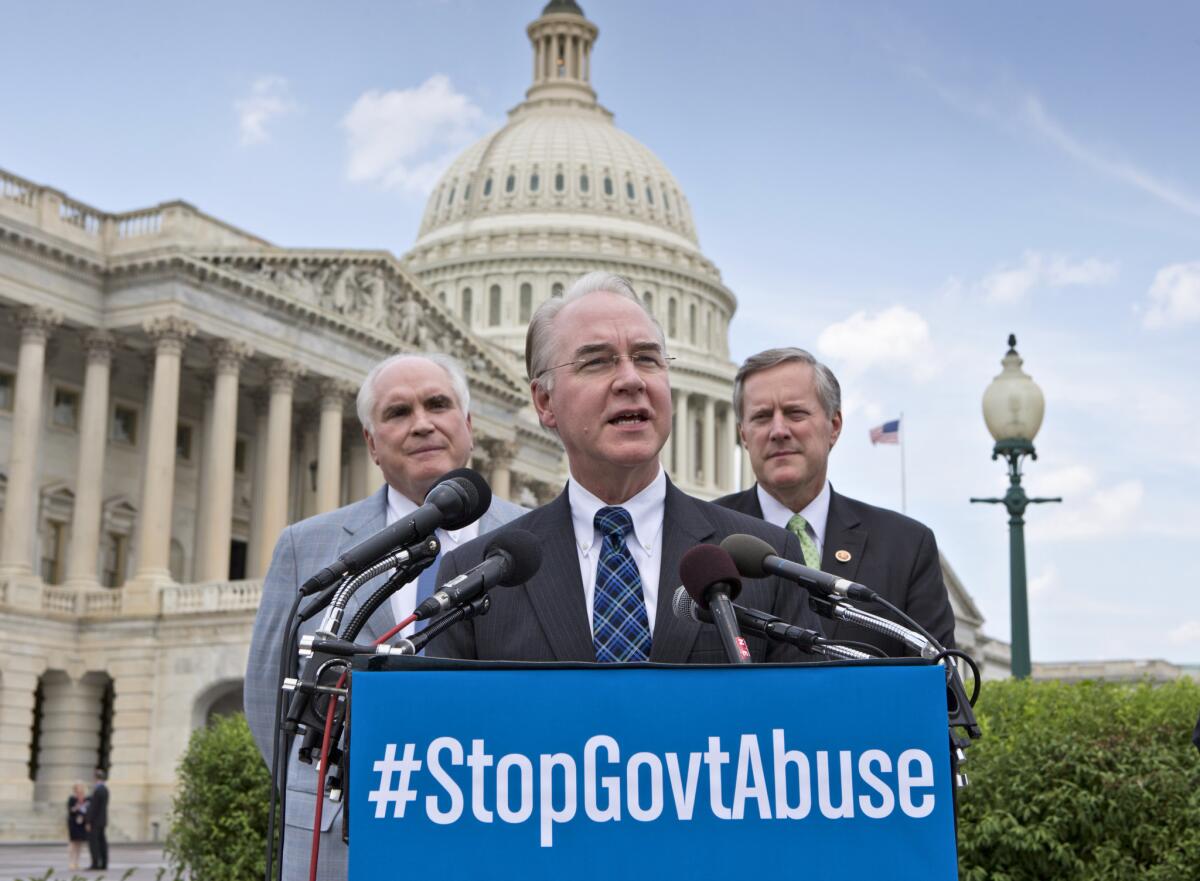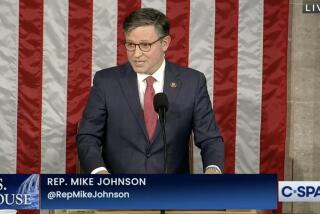Obamacare’s not-so-special treatment for Congress

The Wall Street Journal’s editorial board opens its latest screed against the 2010 healthcare law Monday by paraphrasing H.L. Mencken as follows: “Nobody ever went broke underestimating the cynicism and self-dealing of the American political class.” I guess no one will go broke either underestimating the Journal opinionators’ cynicism and misrepresentations in the face of a policy they oppose.
The Journal’s fusillade was prompted by the Obama administration’s effort to keep congressional staff members from being hurt by a pernicious feature of the 2010 law. Added by Republican Sen. Charles Grassley of Iowa during the Senate Finance Committee’s mark-up, the provision requires members of Congress and their staff to obtain health insurance through the new exchanges established by the law. To the Journal, this is the sort of eat-your-own-dog-food requirement that forces lawmakers to experience what they impose on their constituents. “Harry Truman enrolled as the first Medicare beneficiary in 1965, and why shouldn’t the Members live under the same laws they pass for the rest of the country?” the Journal asks.
Of course they should, but that’s not what Grassley’s amendment did.
The 2010 law’s insurance provisions are aimed at extending coverage to more of the uninsured. With that in mind, it leaves existing group plans untouched, provided that they don’t cap lifetime benefits and their out-of-pocket costs don’t exceed new limits. Some companies may wind up dropping their healthcare coverage as costs rise -- a phenomenon that began long before Obamacare -- and some workers may decide to buy coverage through the exchange instead of through their employer. But with one exception, the law doesn’t force any workers to drop out of a comprehensive group insurance plan in favor of individual coverage.
The exception, thanks to Grassley, is members of Congress and their staff. As federal employees, part of their compensation has been discounted coverage through the Federal Employee Health Benefit Program. The FEHBP is the largest employer-sponsored group in the country, with about 8 million people enrolled. It also happens to work much like the new exchanges: private insurers compete for customers by offering a variety of plans with different levels of cost and coverage.
Forcing members of Congress and their staff to exit the FEHBP isn’t exactly like Harry Truman signing up for a new federal program that made healthcare available and affordable to older Americans for the first time. In fact, it isn’t even remotely analogous.
The real sting in the provision was that it threatened to cut congressional staffers’ compensation unilaterally (as well as their bosses’). Today, as noted above, their employer (Congress) covers about three-quarters of the cost of their insurance. But large employers won’t be able to make that sort of contribution when their workers buy insurance on the new exchanges. In fact, they won’t contribute at all.
That’s not an issue for the vast majority of the uninsured today, who don’t have access to coverage at work. For them, the exchange represents a chance to buy something that’s been unaffordable or flatly unavailable.
As Josh Barro of Bloomberg noted, lower-paid congressional aides may qualify for premium subsidies; those could actually make the coverage less expensive for them than it is today. For the rest, though, buying through the exchange with no contribution from their employers is tantamount to a pay cut.
The Journal is right about one thing: the proper way to fix the problem here would be to amend the law. Ideally, lawmakers would treat Congress like any other employer with group coverage. Failing that, they would pay as much toward the coverage their staffers buy at the exchange as they pay toward their coverage through the FEHBP.
Unfortunately, “fixing” Obamacare isn’t within this Congress’ limited range of capabilities; earlier this year, the House GOP wouldn’t even consider a bill backed by Majority Leader Eric Cantor (R-Va.) to empty the law’s preventive care fund to put more dollars into its high-risk insurance pools, because conservatives opposed anything short of repealing the law. Instead, House Republicans have stayed busy voting to either repeal the law or render it inoperable, as they did for the 40th time Friday.
So, pushed by the White House to address the problem, the federal Office of Personnel Management is expected to come up with a regulatory fix. Although the details aren’t available yet, the Journal assumes whatever the administration does will be illegal and unfair.
“You can bet Democrats will never extend to ordinary Americans the same fixes that they are now claiming for themselves,” the Journal screeched. That’s true, but only because the law singled out Congress for a sanction that “ordinary Americans” do not face. Regardless of what you think about the pay levels for lawmakers ($174,000 per year) or their staff (the most common position pays in the $30,000 to $35,000 range, although senior aides can make considerably more), any decision to cut their compensation should be made out in the open, not in the guise of a populist policy. The Grassley amendment failed that test.
Incidentally, some Republicans are trying now to force all federal employees out of the FEHBP and into the exchanges. If supporters admitted that the proposal (by House Ways and Means Chairman David Camp, R-Mich.) was just a way to cut Washington’s healthcare costs by shifting them onto its workers, then it would be worth debating. But instead, they’re trying to sell it in the same disingenuous, pseudo-populist way as Grassley’s amendment.
ALSO:
Americans don’t need no stinkin’ terrorism travel alert
Follow Jon Healey on Twitter @jcahealey and Google+
More to Read
A cure for the common opinion
Get thought-provoking perspectives with our weekly newsletter.
You may occasionally receive promotional content from the Los Angeles Times.







